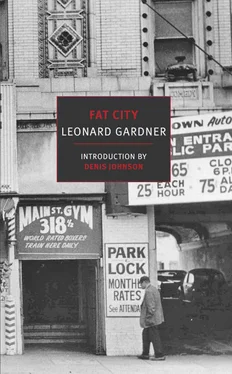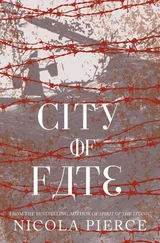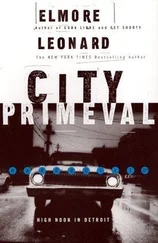Leonard Gardner - Fat City
Здесь есть возможность читать онлайн «Leonard Gardner - Fat City» весь текст электронной книги совершенно бесплатно (целиком полную версию без сокращений). В некоторых случаях можно слушать аудио, скачать через торрент в формате fb2 и присутствует краткое содержание. Год выпуска: 2015, Издательство: NYRB Classics, Жанр: Современная проза, на английском языке. Описание произведения, (предисловие) а так же отзывы посетителей доступны на портале библиотеки ЛибКат.
- Название:Fat City
- Автор:
- Издательство:NYRB Classics
- Жанр:
- Год:2015
- ISBN:нет данных
- Рейтинг книги:5 / 5. Голосов: 1
-
Избранное:Добавить в избранное
- Отзывы:
-
Ваша оценка:
- 100
- 1
- 2
- 3
- 4
- 5
Fat City: краткое содержание, описание и аннотация
Предлагаем к чтению аннотацию, описание, краткое содержание или предисловие (зависит от того, что написал сам автор книги «Fat City»). Если вы не нашли необходимую информацию о книге — напишите в комментариях, мы постараемся отыскать её.
Fat City — читать онлайн бесплатно полную книгу (весь текст) целиком
Ниже представлен текст книги, разбитый по страницам. Система сохранения места последней прочитанной страницы, позволяет с удобством читать онлайн бесплатно книгу «Fat City», без необходимости каждый раз заново искать на чём Вы остановились. Поставьте закладку, и сможете в любой момент перейти на страницу, на которой закончили чтение.
Интервал:
Закладка:
Why he phoned Ruben Luna again he was not entirely certain. What he did convey was that he was drunk, because his manager came and got him. “She’s destroying me,” Tully said in the car. “You’re right about this. I know it.”
While Ruben’s wife, short and plump, in flowered robe and fur slippers, her long black hair in a single braid, stood in the hall doorway, Ruben made him a bed on the pink sofa.
20
The northbound Greyhound droned into Stockton’s fume-filled terminal, and among the passengers who filed stiffly out was a short Mexican wearing a camel’s-hair overcoat and pointed, high-heeled, yellow gaiter shoes. Arcadio Lucero, with a throbbing head and churning bowels after a long ride from Calexico, pushed open the door to the depot lobby and climbed the steps to the men’s room, where, in a dim stall, he stared without comprehension at an inscription scratched across the metal dispenser of toilet seat covers. Mexican dinner jackets .
In the waiting room Lucero bought a pack of gum and a newspaper. Chewing vigorously, he carried his bulging, expansible, strap-cinched leather suitcase several blocks to the Lincoln Hotel. In the closet of a room overlooking the lights and traffic of El Dorado Street, he hung the overcoat on a wire hanger. He was dressed in a wrinkled turquoise suit and a white knit shirt. The coat was long, with two low-set buttons. Under it crossed the straps of suspenders and a shoulder holster. With a hand over the long fly of his trousers, his coat open, he lay on the bed listening to the sounds in the street and in his own abdomen.
From Mexico City to the border at Mexicali, Arcadio Lucero had read comic books and slept in a Pullman berth through glaring sun and starlit darkness, past pale barren ground, adobe villages, towns and cities, mountains, desert, then silos and cultivated fields. He had drunk soda pop from tepid bottles carried in buckets through the train, and eaten mostly what was brought aboard or held up to the windows by the crowds of shouting peddlers in a long succession of stops. Barefoot girls and women had come down the aisle with pans of goat meat, great baskets of chicharrones, hot tortillas wrapped in cloths. Boys, men, old toothless women had run along beside the car when the train was again in motion, calling, offering bananas, guavas, mangoes, paper cones of flavored ice, Jello shimmering on the palm of a hand, lifting something up to him and fumbling his money, running faster to give him his change, or slower, grinning, shrugging, as the train pulled away. Somewhere he had bought half a roasted cow’s head and eaten it held by the horn with newspaper on his lap. What had caused the diarrhea he did not know. But he had fought with it before, and soon he would go to a drugstore.
Over the voluminous legs of his trousers he opened the newspaper. On a page with a photograph of basketball players, he stared at the columns of print until his name separated itself from inscrutable words. He drew from his pocket a small bone-handled knife, folded the paper along the edges of the article, slit each fold, threw all the remaining paper on the floor, and squinted at the excised article, his lips moving silently at each appearance of his name.
Of Billy Tully he knew nothing and he cared to know nothing. He went where there was work, and who his opponents were no longer made any difference. He worried only about himself, his health, his conditioning, and his hands. Because he had broken his left on the top of a head, he had not fought in four months, and though he had carried the hand several weeks in a cast, it had pained him when he again had tried to hit with it in the gym. So he had rested it, and one day from a peddler outside a church he bought for two pesos a silver milagrito in the shape of a tiny hand. In the church he kissed the painted feet of the Virgin and the hem of her robe, laden with hundreds of silver hearts, legs, arms, horses, cows, pigs, and on a small exposed patch of the purple velvet had pinned his hand. The pain was gone the next time he went to the Baños Jordan and threw his fist against a heavy bag.
He had resumed training and, in debt to his manager, had been quickly matched. On the train he had shadowboxed in the men’s room, and at stops along the way had got off and run up and down beside the standing cars. Often in the past he had fought with less training; he had fought without training at all, keeping in shape by fighting sometimes once and twice a week. Since his first bouts as a fourteen-year-old flyweight, he had many times gone into the ring after nights of bedless sleep, with half-healed cuts, broken nose, sore throat, fever, venereal infections, and had learned to have faith in his body. A few times he had been knocked down and had stayed down — not from fear but from the certainty of a severe beating — and that had seemed right too, because his body was his livelihood. Early he had learned how to last, and he had lasted now fifteen years.
Arcadio Lucero had begun with desperate fury and a relentless style evolved in disputes with other shoe-shine boys in the zocalo of Oaxaca where, after the death of his mother, he had slept on the benches under the trees. In winter, wrapped in a serape and wearing a knit cap, he had coughed and shivered with other boys and men through nights of semi-sleep, and though he missed his mother he did not miss an earlier comfort. Before her death he had slept huddled with his brother and sister on the sidewalk while she dozed and tended a charcoal brazier with one or two ears of corn keeping warm at the edge of the grate for any late passer-by. A Zapotec Indian, she had squatted through the days at the same spot, selling the corn she seasoned with slices of lime dipped in salt and powdered chili, while he and his brother loitered outside cafés and cantinas and in the dirt streets of the market, driving away dogs, begging, standing watch at parked cars, wagons, loaded mules and burros. Hard blackened ears of corn had been his breakfast until that cold morning when he awoke to a dead fire and saw his mother lying on her side, openmouthed. His sister, the youngest, had died earlier. His brother left town with a farmer, and Arcadio went to the park with a can of wax.
Those first frantic bouts in Oaxaca and Tuxtla Gutiérrez he had fought with grim zeal. Training sometimes in a dirt-floored gym, fighting under rain-drummed roofs with water dripping into the ring, he had moved northward, arriving at sixteen at the border at Juárez, where he stayed long enough to father a child. When he got to Mexico City he was grown, a seasoned and calculating puncher with the scars of a veteran on his broad Indian face. He weighed 126 pounds.
Fighting in the capital, he could afford a suit and new pointed shoes with elevated heels. His thick hair he wore long, combed back over the tops of his ears. Set in one pierced earlobe was a tiny gold medallion. Soon his face was in the tabloids. Then the fans who crowded the floor of the gym closed about him. Young men lined the ropes when he sparred, pressed around him at the speed bag, a boy standing above him on the quaking platform as a steadying ballast against the force of his blows.
The Coliseo was designed like a small bull ring, circular, its tiers of balconies screened off with chicken wire to protect the boxers, referee and ringsiders from thrown bottles and weapons that might have escaped the searching hands of policemen who patted down from armpits to ankles each entering spectator. Often through the chicken wire and up from ringside at the end of his fights, a shower of coins sailed into the ring. Leaving the arena past the lame and blind still moaning and chanting outside the doors, Lucero was followed by a group of admirers. Sometimes as many as twenty, they accompanied him up the unlit street, ingratiating, shouting, waiting with him at each corner for the last of the group to catch up — a smiling young cripple who dragged himself along the pavement on a piece of rubber tire. And there in the dark among glowing fragrant cigarettes, watching the laborious approach of that low twisted figure with helplessly tossing legs, he felt moments of limitless destiny.
Читать дальшеИнтервал:
Закладка:
Похожие книги на «Fat City»
Представляем Вашему вниманию похожие книги на «Fat City» списком для выбора. Мы отобрали схожую по названию и смыслу литературу в надежде предоставить читателям больше вариантов отыскать новые, интересные, ещё непрочитанные произведения.
Обсуждение, отзывы о книге «Fat City» и просто собственные мнения читателей. Оставьте ваши комментарии, напишите, что Вы думаете о произведении, его смысле или главных героях. Укажите что конкретно понравилось, а что нет, и почему Вы так считаете.












